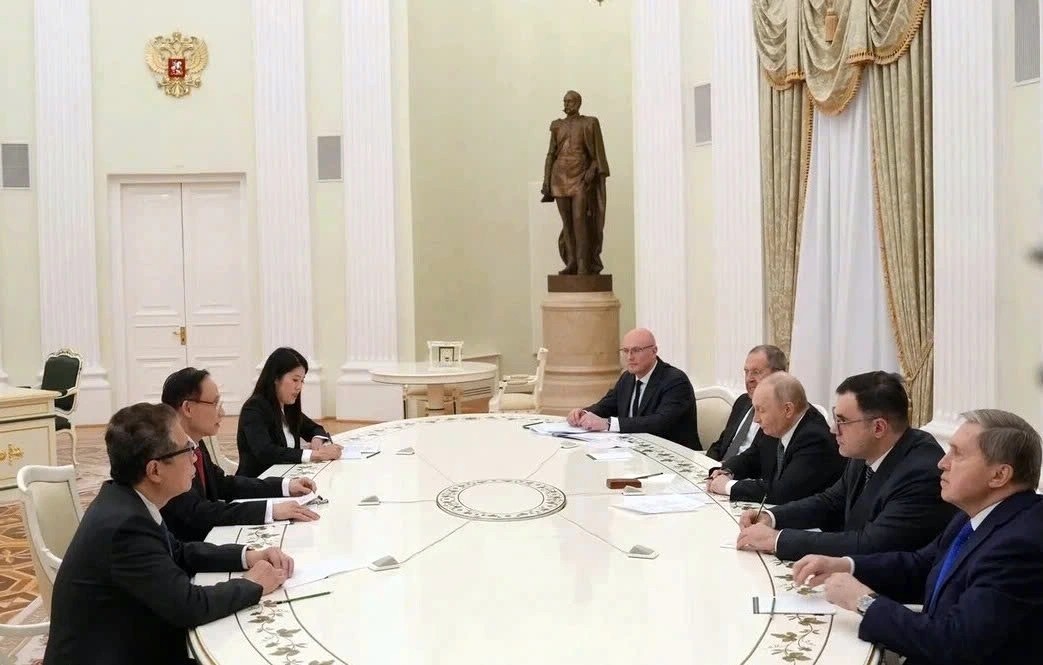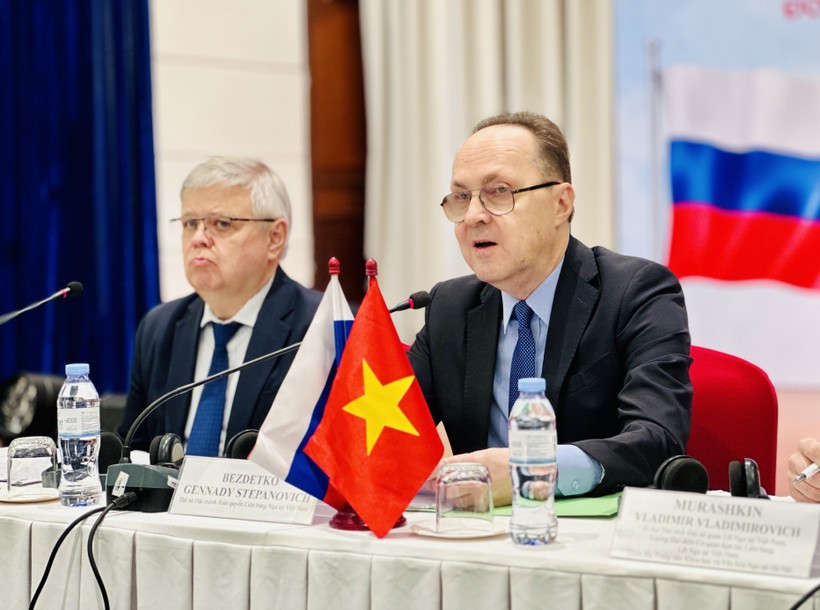Science, Technology, and Healthcare: New Driver for Vietnam-Russia Cooperation
| Petr Tsvetov: Passing on Future of Russia-Vietnam Friendship to the Younger Generation | |
| New Momentum for the Vietnam-Russia Comprehensive Strategic Partnership |
The Forum was jointly organized by the Viet Nam Union of Friendship Organizations (VUFO), the External Relations Committee of Saint Petersburg (Russia), the Vietnam-Russia Friendship Association, the Russia-Vietnam Friendship Association, and the Fund for the Promotion of Russia-Vietnam Cooperation “Tradition and Friendship”.
The seminar was co-chaired by Professor and Doctor of Science Ruslan V. Kirichek, Rector of Saint Petersburg State University of Telecommunications, and Professor and Doctor of Science Nguyen Dinh Duc, Chairman of the University Council of the University of Engineering and Technology, Vietnam National University, Hanoi.
Science and Technology as Key Driver in Vietnam-Russia Cooperation
In his opening remarks, Prof. Nguyen Dinh Duc noted that as Vietnam implements Resolution 57-NQ/TW, which identifies science, technology, innovation, and digital transformation as strategic breakthroughs, strengthening cooperation with Russia, a country with advanced capabilities in biomedical science, energy, and environmental technologies, holds particular significance.
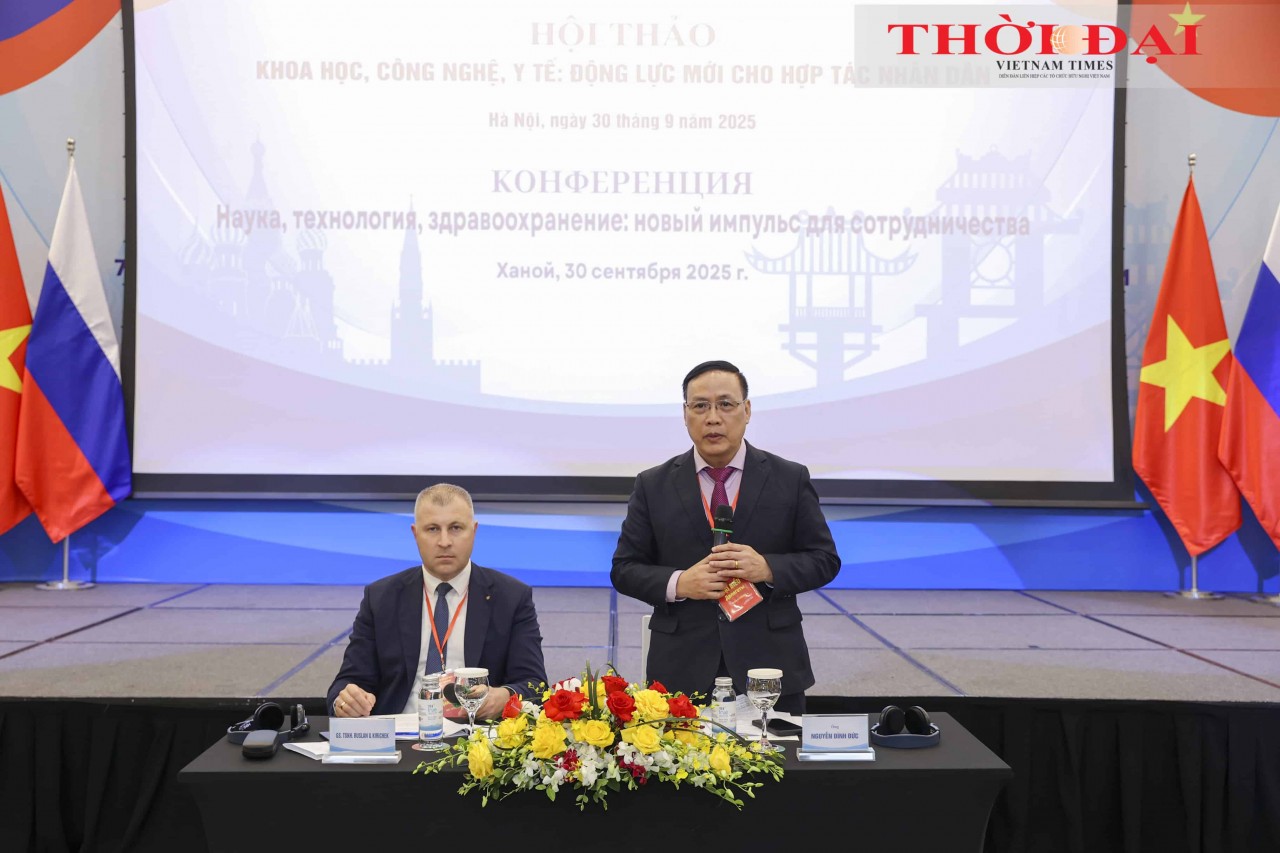 |
| The seminar was co-chaired by Professor and Doctor of Science Ruslan V. Kirichek, Rector of Saint Petersburg State University of Telecommunications, and Professor and Doctor of Science Nguyen Dinh Duc, Chairman of the University Council of the University of Engineering and Technology, Vietnam National University, Hanoi. (Photo: Dinh Hoa) |
Deputy Director General of the Department of International Cooperation under the Ministry of Science and Technology Vu Thi Tu Quyen provided an overview of bilateral scientific and technological cooperation. She emphasized that both countries value science and technology and have adopted long-term development strategies. Russia has designated 2022-2031 as the “Decade of Science and Technology,” aiming to enhance the role of science in addressing national and social challenges, with domestic spending on research and development projected to reach at least 2% of GDP by 2030. Similarly, Vietnam issued Resolution No. 57-NQ/TW on December 22, 2024, identifying science and technology as key drivers for innovation, digital transformation, and competitiveness, with the goal of becoming a modern industrialized developing country by 2030 and a high-income developed country by 2045.
Vu Thi Tu Quyen stressed that Vietnam-Russia cooperation in science and technology has a long tradition and is an inseparable part of their mutually beneficial friendship. Soon after diplomatic ties were established, the two sides prioritized scientific and technical cooperation through the 1959 Agreement between the Democratic Republic of Vietnam and the Soviet Union, followed by the 1992 Agreement on Scientific and Technological Cooperation between Vietnam and the Russian Federation, and the 2014 Agreement on Strategic Partnership in Education, Science, and Technology. Through the Vietnam-Russia Joint Commission on Science and Technology and the Intergovernmental Commission on Economic, Trade, Scientific and Technical Cooperation, bilateral efforts have yielded significant results in diverse areas, ranging from basic research in natural and social sciences to peaceful nuclear energy, biotechnology, medicine, agriculture, information technology, automation, and artificial intelligence.
Beyond bilateral cooperation, Vietnam and Russia also work together in multilateral forums such as ASEAN, APEC, the International Atomic Energy Agency (IAEA), the World Intellectual Property Organization (WIPO), and various international standardization and quality organizations.
Looking ahead, she observed that science and technology will continue to serve as a crucial bridge for strengthening mutual understanding and trust. She proposed that both sides make full use of the Intergovernmental Commission as a mechanism for strategic orientation and coordination of cooperation, while promoting collaboration in bilateral and multilateral frameworks, encouraging people-to-people exchanges and academic cooperation among institutions, universities, enterprises, and social organizations. Priority should be given to areas such as digital technology, artificial intelligence, clean energy, nuclear energy for peaceful purposes, new materials, advanced medicine, biotechnology, and aerospace technology. She also recommended facilitating partnerships between science and technology enterprises to explore each other’s markets, jointly develop new and strategic technologies, and establish Vietnam-Russia science and technology cooperation centers in priority fields.
New Prospects
At the seminar, several presentations highlighted new prospects for Vietnam-Russia cooperation in fields such as pharmaceuticals, environmental monitoring systems, next-generation cancer drug research, and space information.
Professor and Doctor of Medical Science Vladimir Moiseenko, Director of the Napalkov Oncology Center, People’s Physician of the Russian Federation, and Corresponding Member of the Russian Academy of Sciences, cautioned against the dominance of pharmaceutical corporations in cancer treatment, which has led to prohibitively high costs with limited effectiveness. He called on Vietnam and Russia to collaborate on research to optimize treatment protocols, thereby improving outcomes while reducing the financial burden on patients.
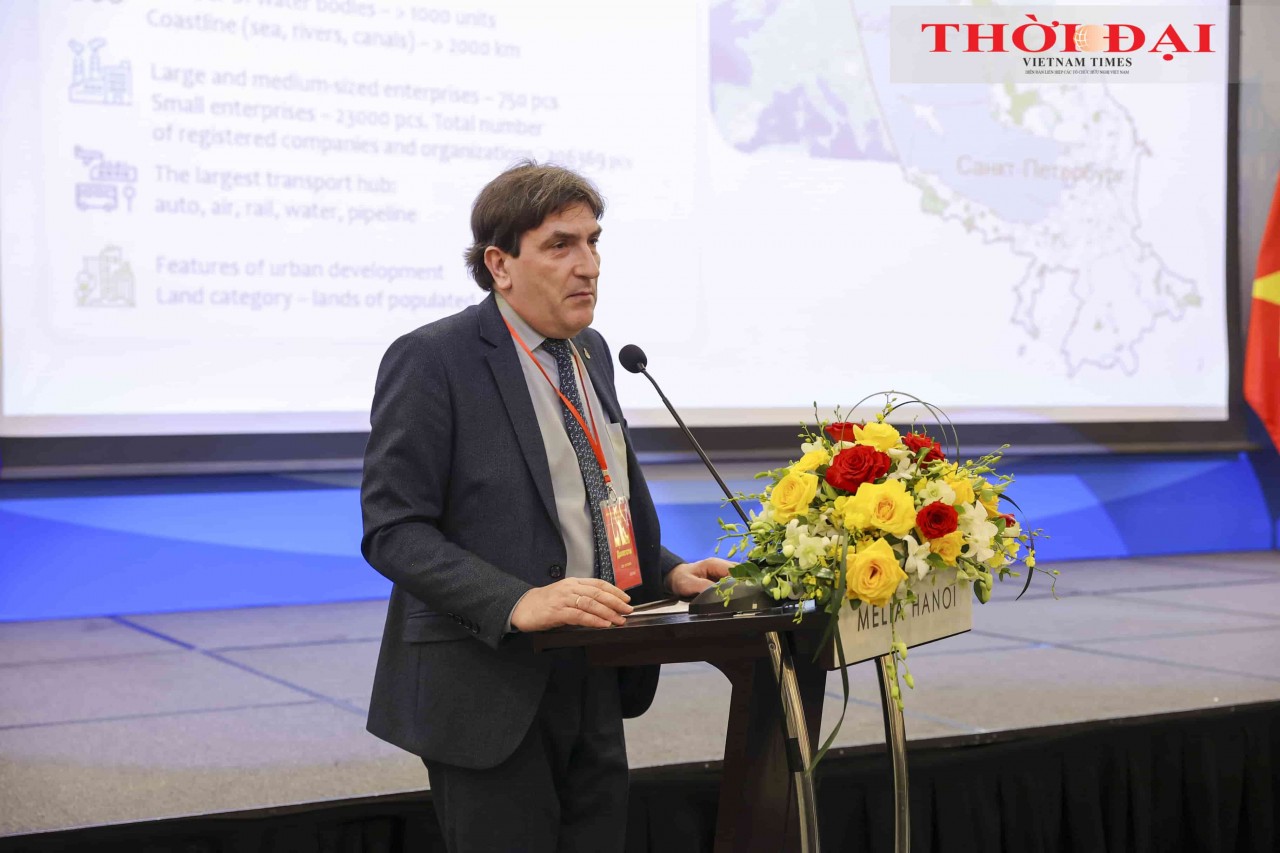 |
| Dr. Ivan Serebritsky, Doctor of Geological and Mineralogical Sciences and Deputy Chairman of the Committee for Environmental Management and Ecology of Saint Petersburg. (Photo: Dinh Hoa) |
Dr. Ivan Serebritsky, Doctor of Geological and Mineralogical Sciences and Deputy Chairman of the Committee for Environmental Management and Ecology of Saint Petersburg, shared the city’s experience in establishing a three-tier environmental monitoring system (central, local, and grassroots levels). This, he suggested, could open avenues for cooperation between research and training institutions in Vietnam and Russia. He noted that although Saint Petersburg faces major environmental challenges, the city has adopted a long-term strategy through 2035, focusing on building a culture of environmental protection and mobilizing the participation of the entire society.
Saint Petersburg has relocated dozens of industrial facilities from its city center, transitioned entirely to natural gas use, and operates an air monitoring system with 27 automatic stations measuring more than 20 indicators every 20 minutes, 24 hours a day, as well as several mobile stations capable of tracking up to 140 indicators. Citizens can file environmental complaints through both digital and traditional channels, with authorities receiving about 1,100 reports annually, mostly concerning air quality. An inter-agency environmental committee, including representatives from both central and municipal authorities, has helped accelerate problem resolution. Notably, the number of complaints regarding unusual and unpleasant odors decreased by 30% during 2023-2024.
At present, Saint Petersburg is also applying artificial intelligence, integrating data from thousands of traffic cameras to assess air quality in real time. The results indicate that air quality has reached safe levels, demonstrating the effectiveness of combining technology, governance, and social consensus in environmental protection.
A notable example of scientific and technological cooperation between Vietnam and Russia mentioned at the seminar is the Vietnam-Russia Tropical Center. According to Professor Andrey Nikolaievich Kuznetsov, General Director on the Russian side, the Center was established in 1988 under an Intergovernmental Agreement between the two states. From the outset, the Center developed three main research areas, established three sub-institutes in different regions of Vietnam, while the Russian side set up laboratories in Moscow, including a dioxin laboratory equipped with the most advanced technology at that time. Personnel were rigorously selected, with strict requirements for health, professional qualifications, and proficiency in Russian. Many Vietnamese staff were trained in Russia, forming a joint scientific workforce for the Center. Currently, the Center operates 19 laboratories, three climate testing stations, three biological stations, one research vessel, and employs nearly 1,000 Vietnamese and Russian staff and experts. Its balanced 50/50 financial model has been described by Prof. Kuznetsov as a “flexible and effective example” of scientific and technological cooperation. In May 2024, the Center received the scientific research vessel Professor Gagarin, opening a new phase of collaboration in tropical marine and ocean studies.
According to Prof. Kuznetsov, 57 Russian scientific and educational institutions are now engaged in regular cooperation with the Center. Its fixed and mobile laboratories, along with advanced personnel training programs, contribute to safeguarding national sovereignty, particularly in the study of natural pathogens and epidemic forecasting.
Participants at the seminar highly valued the insights shared on Russia’s achievements in science, technology, and healthcare, expressing hope that Vietnam could adopt and apply such advances for the benefit of its people.
In his concluding remarks, Prof. Nguyen Dinh Duc reaffirmed that the potential for Vietnam-Russia cooperation is vast and feasible, especially in healthcare, tourism, emerging technologies, and human resource training. He proposed establishing more in-depth thematic forums to translate opportunities into reality, emphasizing that every individual and organization should act as a “soldier on the front line of people-to-people diplomacy” to promote cooperation. The seminar laid an important foundation for many future activities, with the recommendations to be consolidated by the Viet Nam Union of Friendship Organizations and submitted to central authorities for implementation. He underlined the “three-house model” - the State, academia, and enterprises, with enterprises playing the key role, as the essential mechanism to turn Vietnam-Russia cooperation plans into concrete outcomes.
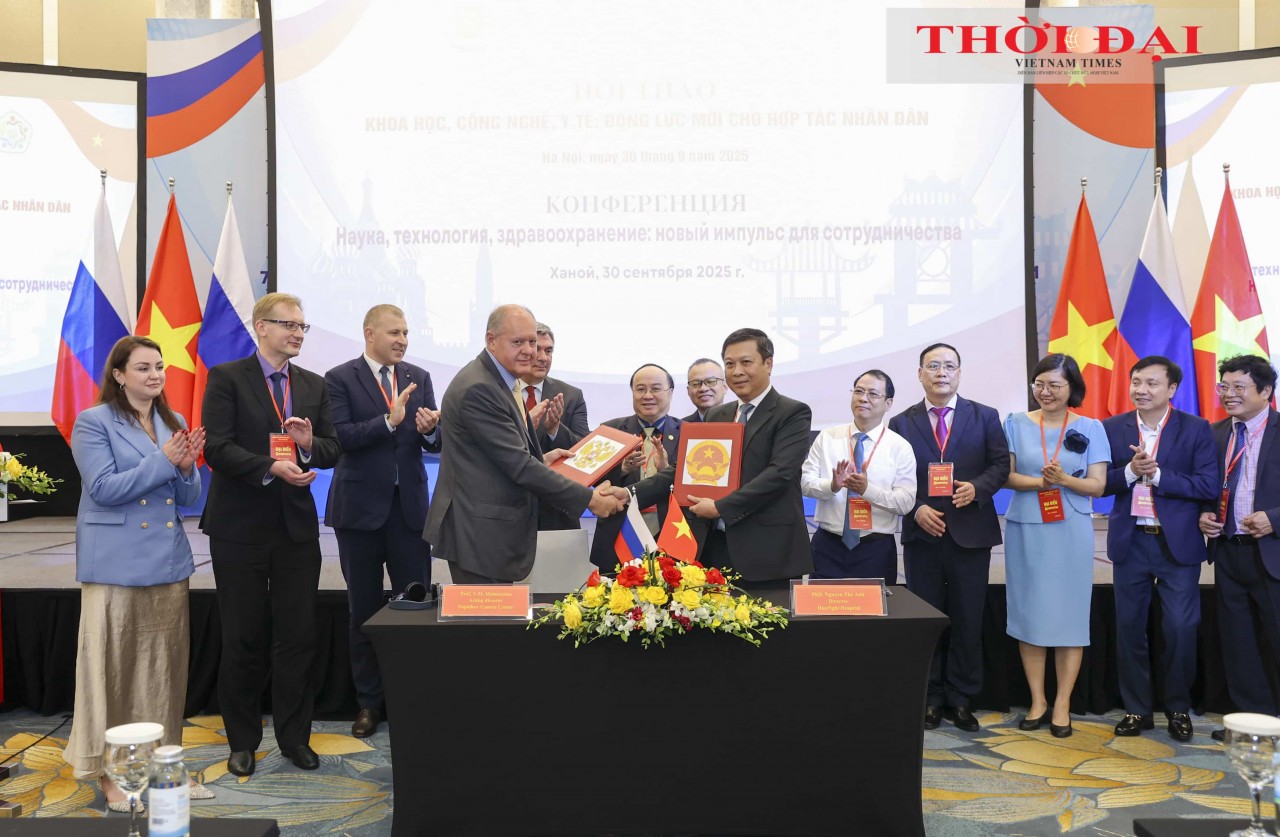 |
| The signing of a Memorandum of Understanding (MoU) between the Friendship Hospital (Vietnam) and the Napalkov Oncology Center (Russia). (Photo: Dinh Hoa) |
On this occasion, participants also witnessed the signing of a Memorandum of Understanding (MoU) between the Friendship Hospital of Vietnam and the Napalkov Oncology Center of the Russian Federation.
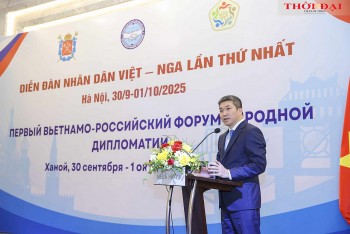 | First Vietnam-Russia People’s Forum Concludes with Significant Results After two days of working in Hanoi, the First Vietnam-Russia People’s Forum concluded on October 1. In his closing remarks, Nguyen Quoc Hung, Director of ... |
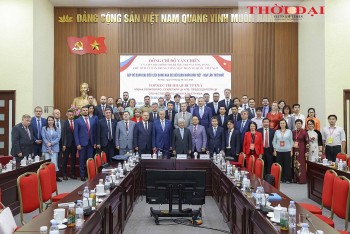 | First Vietnam-Russia People’s Forum Strengthens Bonds of Friendship and Trust On October 1, at a meeting with the delegation of the Russian Federation attending the First Vietnam-Russia People’s Forum, Politburo Member, Secretary of the Communist ... |
Recommended
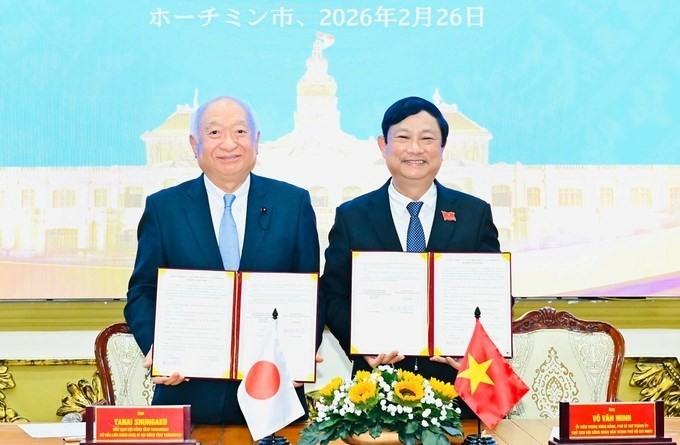 Friendship
Friendship
Ho Chi Minh City, Yamaguchi Enhance People-to-People Exchanges and Coordinate Training for Elected Representatives
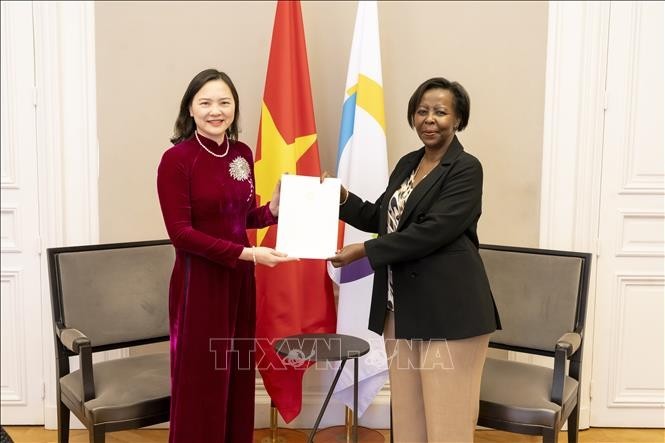 Friendship
Friendship
Vietnam Affirms Active Role in Francophonie Community
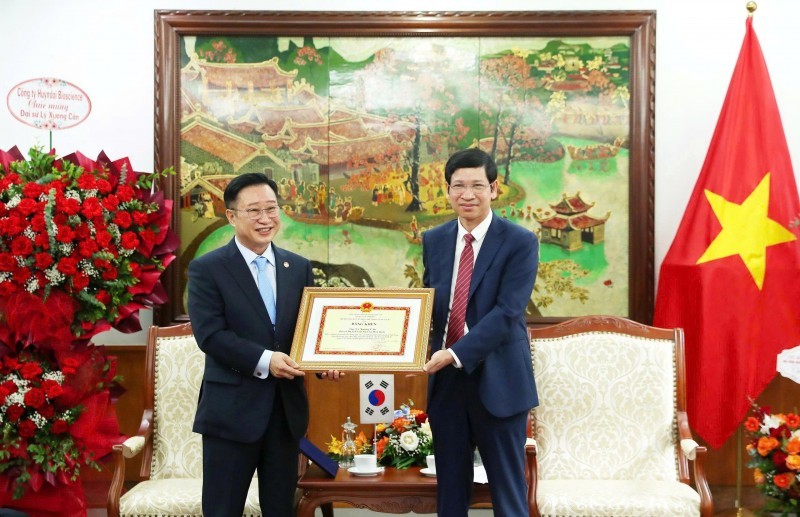 Friendship
Friendship
“An 800-Year Bond Between Vietnam and the RoK and My Return”
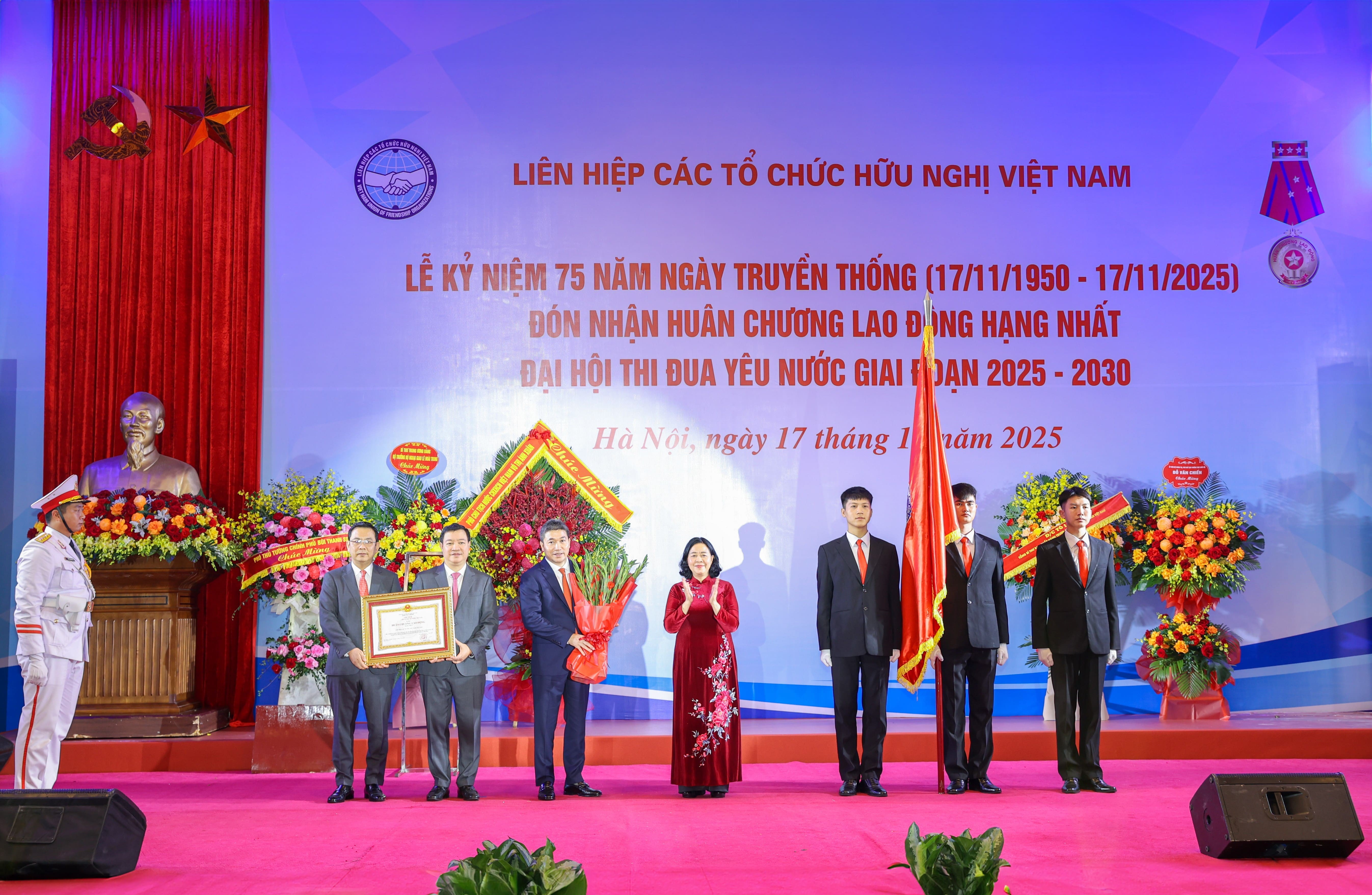 Friendship
Friendship
People-to-People Diplomacy: Change to Reach Further
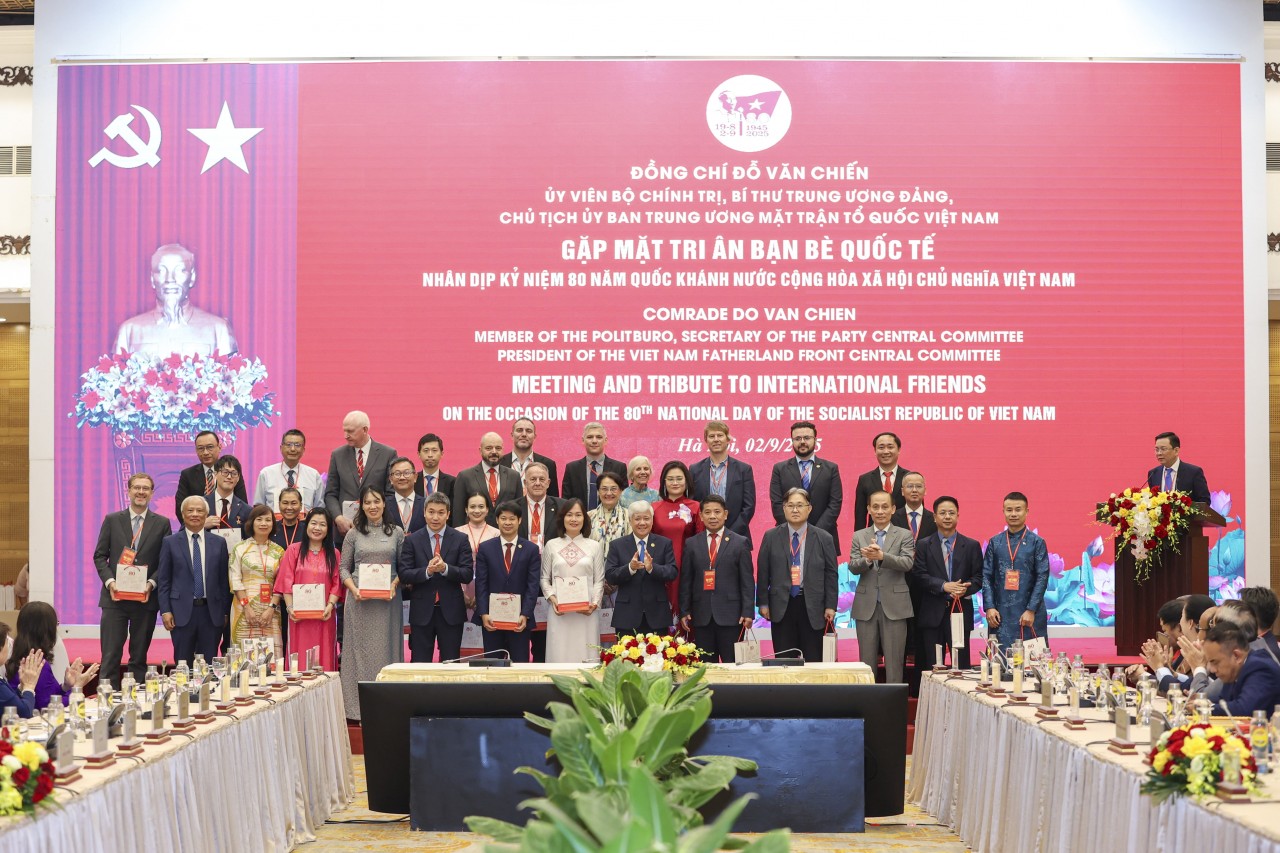 Focus
Focus
Outstanding Highlights of Viet Nam’s People-to-People Diplomacy in 2025
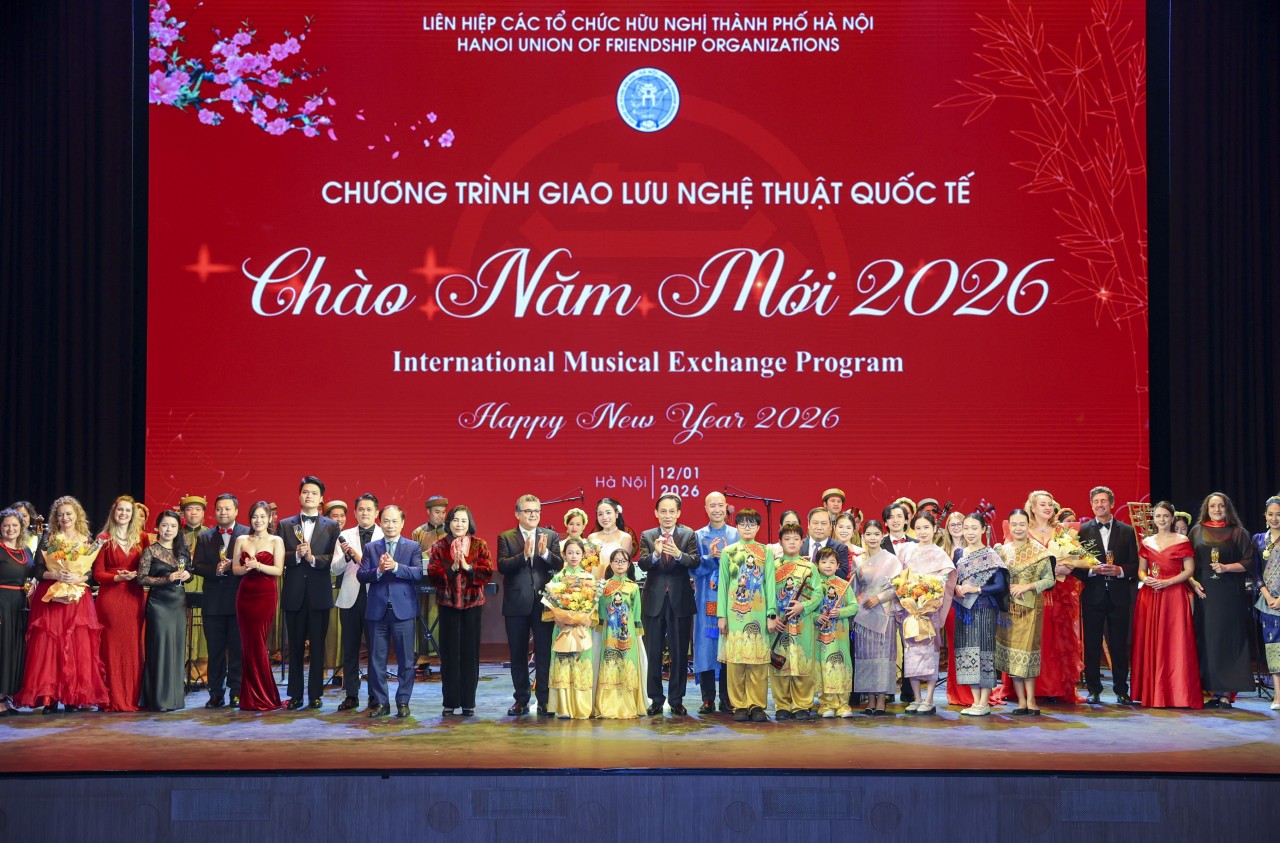 Friendship
Friendship
Hanoi Union of Friendship Organizations: Spreading Values of Peace in Heart of Capital
 Friendship
Friendship
G4 Ambassadors to Vietnam Extend Greetings for the New Year of the Horse
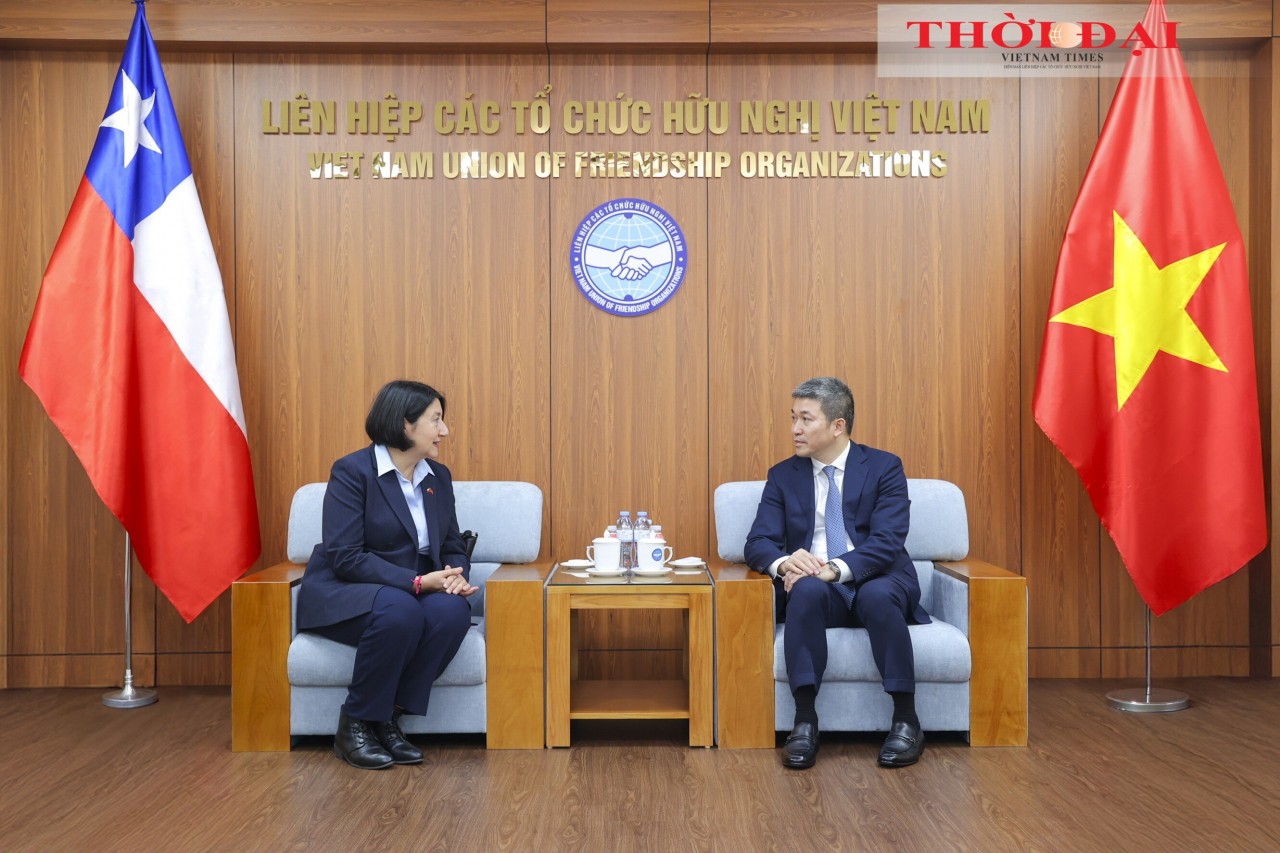 Friendship
Friendship

